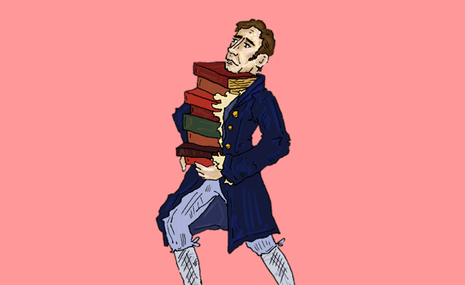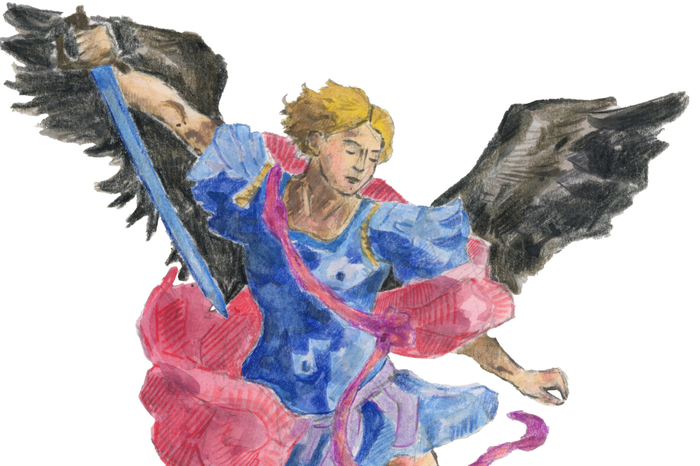Off the bookshelf: The Prelude Book III – ‘Residence at Cambridge’, William Wordsworth
In this column, the Arts editors discuss Wordsworth’s description of his time at St John’s

“Of College labours, of the Lecturer’s room
All studded round, as thick as chairs could stand,
With loyal students faithful to their books,
Half-and-half idlers, hardy recusants,
And honest dunces—of important days,
Examinations, when the man was weighed
As in a balance! of excessive hopes,
Tremblings withal and commendable fears,
Small jealousies, and triumphs good or bad...”
Emily Cushion - Arts Editor
Wordsworth frames Cambridge’s students as the jewels ‘studded round’ the lecture hall. Though I can’t say I’ve ever felt particularly sparkly at a 9am, there’s definitely something to be said for recognising your value, no matter how many chairs are in the room. You may identify as one of his ‘loyal students’, visiting the library at ungodly hours and getting every essay in on time, or feel more represented by the ‘Half-and-half idlers’ – I think we’d all fit in this group if we prioritised wellbeing over writing. Nevertheless, Wordsworth appreciates that there is no true ‘Cambridge student’ archetype, and I for one think we should celebrate our differences. When I’m feeling particularly locked in (writing an entire diss draft in one week), I might appreciate the support of a friend who’s taking the afternoon off (AKA one sensible enough to think about coursework over Christmas). ‘Residence at Cambridge’ permits us to be flawed; I’m willing to admit to harbouring ‘Small jealousies’ of my very talented friends if Wordsworth is. We often feel ‘weighed’, both against each other, and ourselves, but we must remember that we are each a precious gem in the crown of Cambridge.
Ryan Vowles - Arts Editor
I’ve re-read this poem throughout my time here, especially during long nights in John’s library, when I would retreat from my flashcards to the bookstacks and open a crumbling leather book titled ‘Memoir of Wordsworth’, in which I first discovered this work. Like Emily, I found regular comfort in knowing that even Wordsworth harboured envy and insecurity, and of course found satisfaction in his description of John’s. Most of all, his experience as a fresher, coming from the countryside like myself, always pleased me. Confronted by the familiar ‘dream’, he described the ‘courts, cloisters, gowns, and doctors’ as a ‘migration strange for a stripling of the hills’ and also seems to have enjoyed plenty of ‘suppers, wine and fruit’. Later in the poem (it is very long) he goes on:
“I could not print
Ground where the grass had yielded to the steps
Of generations of illustrious men,
Unmoved. I could not always lightly pass
Through the same gateways, sleep where they had slept,
Wake where they waked, range that inclosure old,
That garden of great intellects, undisturbed.”
Perhaps it’s a pretentious thought, but it seems reasonable to me. Were we to be fully cognisant that Newton, Darwin, Wordsworth, Wilberforce, Byron, and Wittgenstein had passed ‘through the same gateways’ as we do, I think we would feel daunted too.
 News / Christ’s announces toned-down ‘soirée’ in place of May Ball3 February 2026
News / Christ’s announces toned-down ‘soirée’ in place of May Ball3 February 2026 News / Deborah Prentice overtaken as highest-paid Russell Group VC2 February 2026
News / Deborah Prentice overtaken as highest-paid Russell Group VC2 February 2026 News / Right-wing billionaire Peter Thiel gives ‘antichrist’ lecture in Cambridge6 February 2026
News / Right-wing billionaire Peter Thiel gives ‘antichrist’ lecture in Cambridge6 February 2026 News / John’s duped into £10m overspend6 February 2026
News / John’s duped into £10m overspend6 February 2026 Fashion / A guide to Cambridge’s second-hand scene2 February 2026
Fashion / A guide to Cambridge’s second-hand scene2 February 2026










